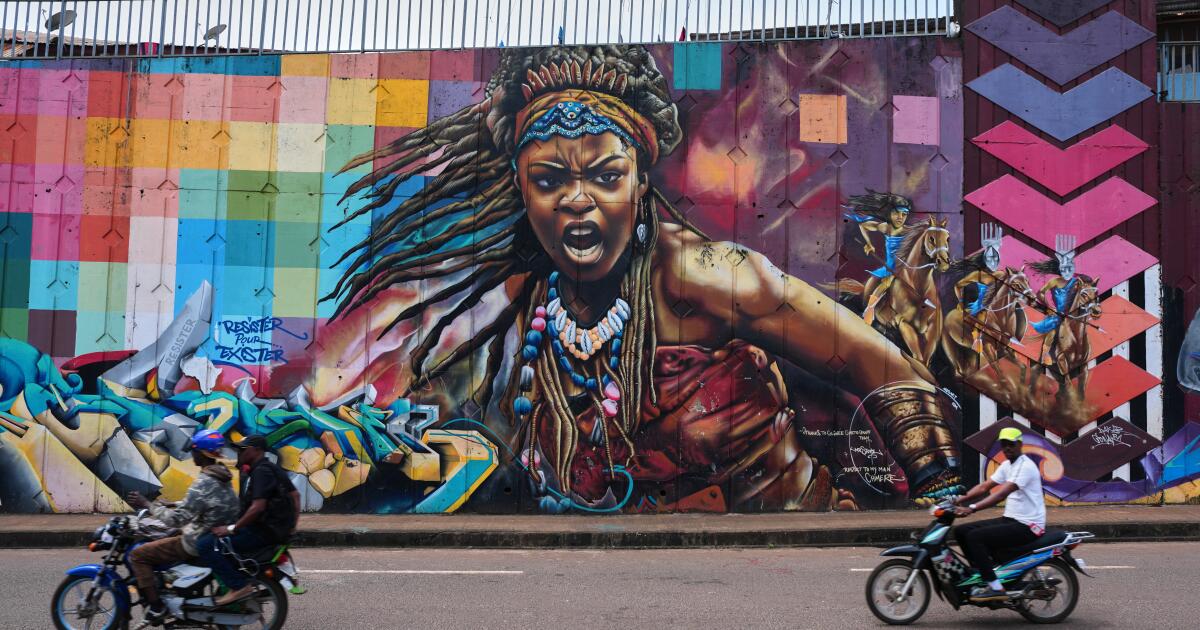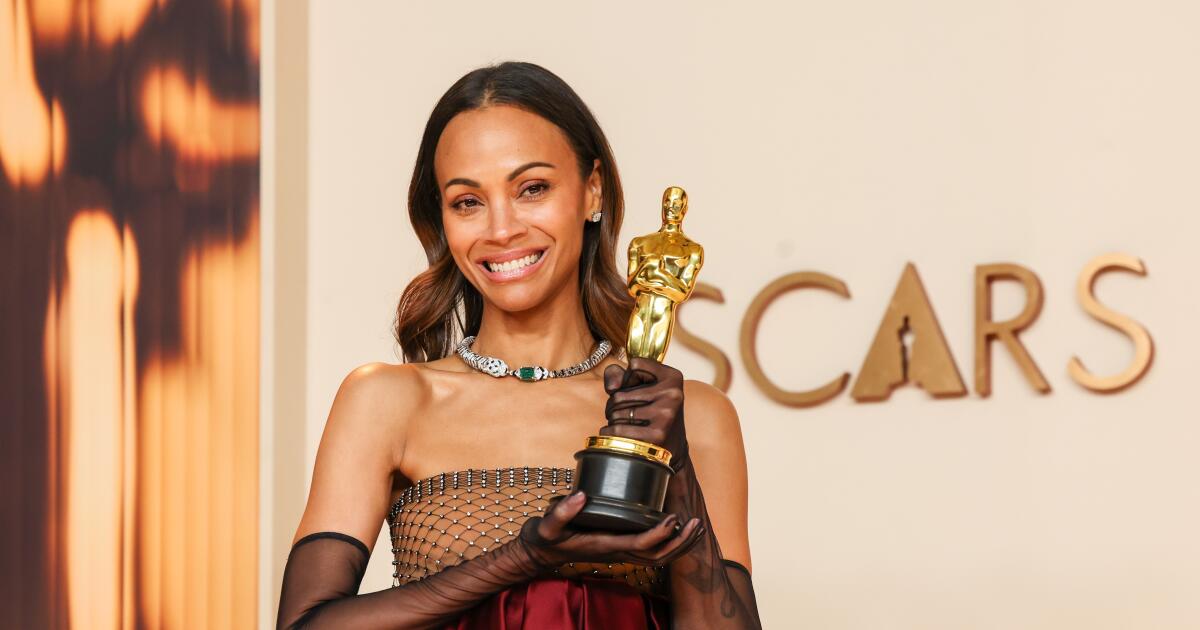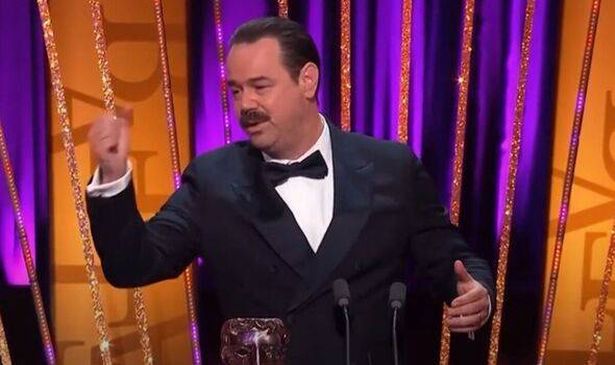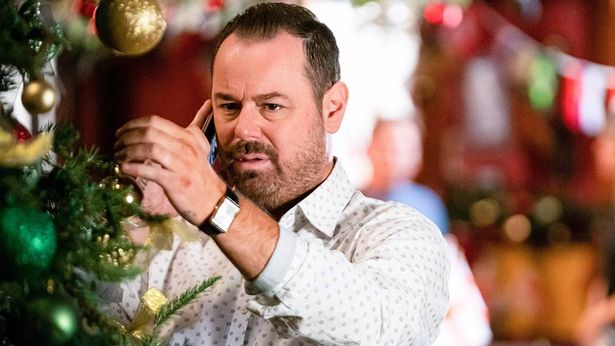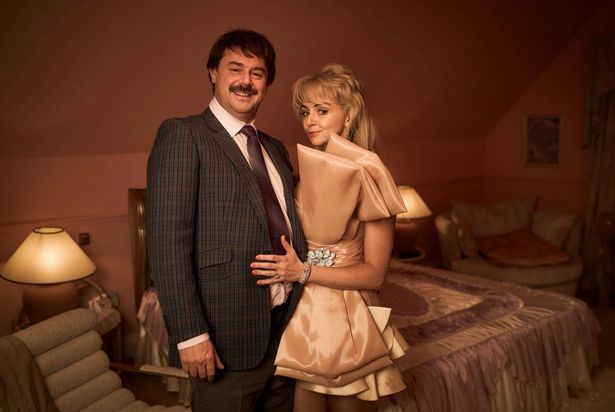Danny Dyer was overcome with emotion as he accepted the award for Best Male Performance at the 2025 Bafta TV Awards
Danny Dyer left everyone speechless when he nabbed a prestigious Bafta Award on Sunday, May 11, with his typically colourful language adding some spice to the proceedings. Overcome with emotion, yet true to his EastEnders hardman persona, he didn’t hold back on the expletives during his acceptance speech.
The host for the evening, Alan Cumming, wasn’t caught off guard though, he quickly jumped in to apologise to viewers at home for the actor’s fruity on-air antics.
Celebrating his win for Best Male Performance in Sky Comedy’s ‘Mr Bigstuff’, Danny admitted with a cheeky grin: “The acting was so bad it was funny.”
He then set tongues wagging by dropping the F-bomb repeatedly, flouting the Bafta’s language guidelines, despite having faced a warning earlier on.
Despite the few choice words, the former soap star’s message resonated with the audience as he admitted to being “choked up” and sweetly referenced his two daughters during his heartfelt thanks at London’s Royal Festival Hall, reports Belfast Live.
Here, is an insight into Danny Dyer’s notorious speech, his nod to EastEnders, and where he’s heading in his career next.
The full speech
A good chunk of the 47-year-old’s candid speech was edited out due to the risqué content, but his gratefulness couldn’t be clearer from the snippets that survived.
He kicked things off by expressing gratitude to Sky for taking a chance on their show, saying: “I want to thank Sky for giving our show a shot. F***ing hell, I’m choked up.” In particular, he highlighted Ryan Sampson, the writer he holds in high esteem.
Continuing with his thank yous, Danny quipped: “He’s one of the greatest people ever to come out of Rotherham – not saying much. You won this for me mate.”
Danny further heaped praise on Ryan who is also an actor, proclaiming: “One of the best actors this country’s ever produced, I’m telling you. Never done the same thing twice. Which is not something I can say.
“He wrote this part for me, so you know… I’m getting choked up again, f*** me. So you won this for me, mate, I really appreciate it. Thank you so much.”
In an emotional moment, the star of The Rivals expressed his gratitude towards his daughters, Dani, 28, and Sunnie, 18, who were in the audience, beaming with pride as they witnessed their father’s triumph: “Girls, Sunnie and Dani… I’ve done it, girls, I’ve f***ing done it.”
Upon Danny’s departure from the stage, host Alan Cumming stepped in to express apologies for any offence caused by the “naughty language”.
What Danny Dyer said away from the cameras
While backstage and still riding high from his award victory, Danny didn’t hold back during a chat with the Metro newspaper, he giggled: “Oh, there’ll be some people fuming!”, and assertively declared: “I don’t know, man. I’ve earned it. I only want one, I don’t need more than this. I’m happy.”
Reflecting on his previous recognitions and subtly jabbing at his time on EastEnders, he said: “I’ve lifted a couple of NTAs over the years, and I always like to win awards and lose them, do the moody clap [pretending] that you’re happy for someone else… I’ve done all that b******s, and I thought I’d be doing that tonight.”
Reflecting on his recent triumphs with both Mr Bigstuff and Rivals, he shared: “I’ve had a really good run this year. Rivals has been so well received. A bit odd, really. I’ve got Rivals sitting there, and I’ve got Mr Bigstuff there.”
On to big things
Fans are in for a treat as the critically acclaimed Mr Bigstuff makes its comeback with Danny at the helm in Sky Comedy’s spotlight, gearing up for its much-anticipated second season.
While we’re all on tenterhooks for the release date of series two on Sky and Now, the network has teased that the premiere is slated for “later in 2025”, with Danny set to dazzle audiences once again as the brash brother Lee.
Disney + Rivals fans will be ecstatic to hear that Danny is set to return to the role of businessman Freddie Jones once more, a role that snagged him the British Press Guild Award for Best Actor and the RTS Television Award for Supporting Actor.
The exact timing for the return of series two remains shrouded in mystery, with some media outlets speculating “later in 2025” or “early 2026”. Yet, an insider on ITV’s Lorraine hinted at a much sooner date, suggesting “July 2025”.
Chatting with Andi Peters, who was filling in on ITV’s Lorraine on Monday, May 12, Ria Hebden let slip: “Rivals, we now know it’ll back on screens this July.”
Rivals will return to Disney + at some time in the near future and Mr Bigstuff will return to Sky and Now, also at a near point in 2025.
